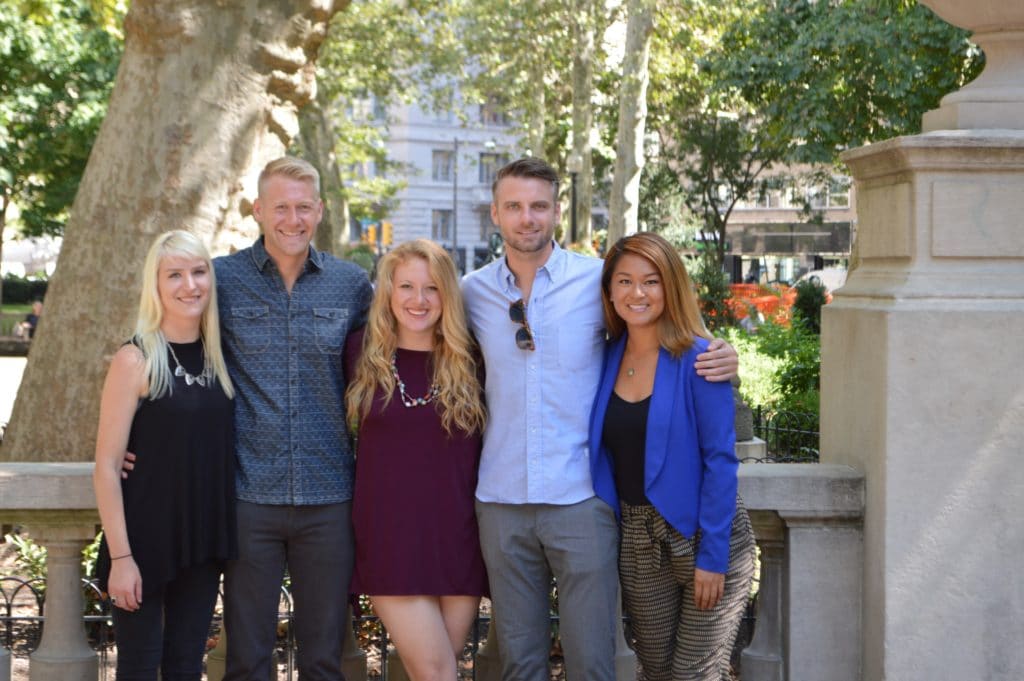Social entrepreneur Melissa Lee combines experiential learning with the United Nation’s sustainable development goals (SDGs). Her five-employee startup, The GREEN Program, offers short-term experiential accredited college programs focused on SDG-related topics.
The UN’s recent general debate session, which focused on sustainable development goals, puts a spotlight on her approach.

The GREEN Team in their home town of Philadelphia, PA.
It all started when Lee was a sophomore at Rutgers University in 2009, feeling like she wasn’t particularly engaged by her studies. What, she thought, was she really going to college for?
At the same time, Lee had a long-time interest in learning by doing. For example, when she was 14 and considering becoming a physician, she convinced her doctor to let her work at his office for the summer. (The experience convinced her to pursue other career options).
That summer, she and a few friends traveled to Costa Rica, to visit another part of the world. During that trip, they came upon a wind farm near their hotel. Intrigued, they persuaded the owner to give them a tour. It was an enlightening experience. And it seemed to Lee to hold the key to an exciting way to experience education.
With that in mind, Lee and her friends brought a group of 15 students back to visit over winter break to learn about the renewable energy industry in Costa Rica. It was a success and Lee realized she had the makings of a business: experiential programs enabling students to learn about the UN’s SDGs by seeing some of the issues first-hand.
Now, the company offers 8-to-10 day programs in Iceland, Peru and Philadelphia. She chose Iceland for the country’s use of hydroelectric and geothermal energy—a case study for how a nation can switch to renewable energy sources. Students, many of whom are engineers or studying environmental science eager to learn about more than technology, visit renewable energy facilities and talk to managers.
In Peru, the focus is water resources management, with visits to polluted rivers and investigations into the societal reasons for the problem—think companies dumping medical waste in the water—as well as government facilities aimed at finding solutions.
As for Philadelphia, Lee chose that partly because it’s a place with many international students and also because, she says, the city has been in a leader in sustainability. The most recent addition to the program, the focus is on sustainable design and urban regeneration. According to Lee, the pilot program attracted many U.S. students who hoped to take advantage of opportunities to network, especially architects interested in, she says “building safer, greener cities.”
All the programs end with a capstone project aimed at coming up with a solution to a related issue. Examples: Students who attended the Iceland program examined the feasibility of new micro-smart grids in India, with a case study exploring a solar farm / battery storage system for a community of 10,000 people in the state of Karnataka. In Peru, students developed plans for a water purification system built from reused materials.
The programs are all accredited, tied to courses in different universities and led by professors and professionals, and are held year-round.
See the originial article here: http://www.forbes.com/sites/annefield/2016/09/27/experiential-learning-focused-on-the-uns-sustainable-development-goals/#6de14e146daa
